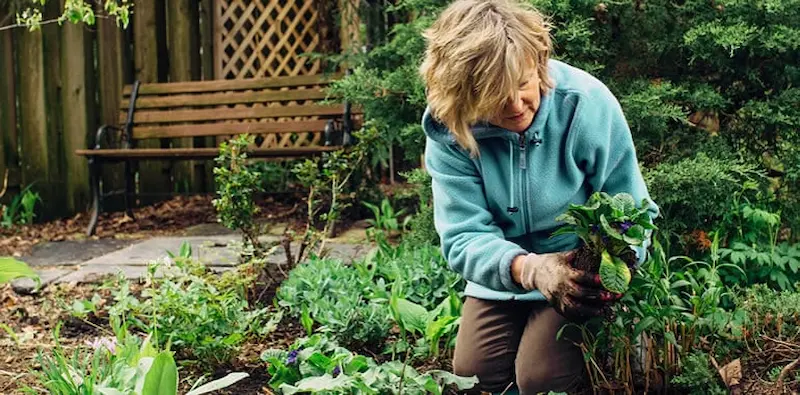Gardening as Therapy: A Guide to Healthier Living
Gardening is more than just a hobby; it’s an effective therapeutic practice that can transform your physical and mental well-being. Whether you have a sprawling backyard or a small balcony, connecting with nature and cultivating plants has incredible benefits. This guide explores how gardening can be used for healthier living, offering insights and tips to enhance your life through this rewarding activity.
The Science Behind Gardening and Wellness
Gardening has been widely recognized for its positive impact on health. Research shows that outdoors and engaging in green activities can reduce stress, lower blood pressure, and improve overall mood. Working with plants helps individuals tap into the calming aspects of nature while providing a sense of accomplishment and purpose.
One reason is that gardening can stimulate the production of endorphins, the body’s natural mood-enhancing chemicals. It also encourages mindfulness as you focus on the textures, colors, and smells of the plants around you. For many, gardening becomes a meditative escape from the pressures of daily life.
Physical Benefits of Gardening
While gardening is often seen as a peaceful pastime, it can also be a great form of exercise. Activities like digging, planting, weeding, and watering can improve flexibility, strength, and endurance. Even 30 minutes in the garden can help burn calories and build muscle, making gardening an excellent low-impact workout.
Additionally, it encourages healthier lifestyle choices. Many people who grow their fruits and vegetables opt for fresher, healthier meals. The physical work combined with the reward of cultivating your produce can make a real difference in your overall health.
Reducing Chronic Illness Risk
Engaging in outdoor gardening can lower your risk of developing chronic illnesses associated with a sedentary lifestyle. Incorporating physical movement into your daily routine in a way that doesn’t feel like exercise can lead to better heart health and improved mobility in the long run.
Mental Well-Being Through Gardening
Gardening isn’t just good for the body; it’s a balm for the soul. Spending time connecting with the earth can help reduce symptoms of anxiety and depression. It gives people a sense of purpose and allows them to reconnect with something greater than themselves.
A Stress-Relief Tool
For many, gardening acts as a natural stress reliever. The activity engages your hands and mind in a way that takes your attention off stressors. Being surrounded by greenery and flowers boosts serotonin levels, helping you feel calm and grounded.
Even simple gardening tasks like watering plants or pruning flowers create a routine that can foster stability and predictability, vital for managing mental health challenges.
Building Community Through Gardening
If you share a love for gardening with others, the practice can expand beyond solitude into a shared community experience. Community gardens, gardening clubs, or even swapping tips with neighbors can create strong social connections.
For beginners, finding inspiration at a local plant nursery in Salt Lake City or wherever you are can be a great way to explore the variety of plants and learn from experts while connecting with like-minded individuals. Such exchanges can reduce feelings of isolation and strengthen bonds within your community.
Tips for Starting a Therapeutic Garden
If you’re ready to explore the healing benefits of gardening, you don’t need to start big. Here are some practical tips for creating your therapeutic garden.
1. Start Small, Think Big
Whether in an urban apartment or rural countryside, you can start with something as simple as a window box or a few potted plants. Choose low-maintenance plants like herbs or succulents to build confidence as a beginner.
2. Focus on What You Love
Planting flowers, vegetables, or shrubs you genuinely enjoy can make the process more fulfilling. You’ll have more motivation to care for your garden if it features plants that bring you joy or serve a practical purpose, like homegrown produce.
3. Incorporate Sensory Elements
A healing garden should engage all your senses. Consider growing fragrant flowers like lavender, brightly colored blooms, or herbs you can use in the kitchen. You could also include features like wind chimes or a small water fountain for soothing background sounds.
4. Stay Consistent
Gardening doesn’t require hours each day. Even a few minutes spent tending to your plants can significantly affect your mental and physical health. Create a routine that’s manageable and enjoyable.
The Lasting Impact of Gardening on Health
Gardening is an adaptable and inclusive practice. Regardless of age, skill level, or physical ability, it offers a range of options to suit everyone. The beauty of this activity is that it doesn’t just enrich your health today; it fosters habits and skills that can benefit you for years to come.
The therapeutic benefits of gardening are endless. It’s a holistic approach to healthier living, from promoting mental clarity and reducing stress to improving physical strength and community ties. Whether growing flowers for beauty or vegetables for sustenance, the rewards are worth the effort.
Start small, stay consistent, and watch both your garden and sense of well-being flourish.

